|
Sometimes you find yourself thinking that you don't have the tools for what needs building, for what needs repairing. But if you look around hard enough sometimes you'll find the next best thing. Not a hammer but a crow bar could do. You make it work. The worst prisons sometimes are the ones we build for ourselves. The hardest part of release is letting go of what put us there. Here's a torn chapter of what happened, and the missing piece could be a blank page. The fearful pen in pocket, the courage to write something from the other side of all the breakdown. Why me, why not me? Turn it over, there's always another side. Good, bad, an endless dance. Do you know any other steps? We work our way in and out of the light. Gotta sleep sometime. Gotta carry it till your arms go numb, gotta lay it down, gotta learn the rhythm and the lack of. Every misstep is a step nonetheless. Don't matter the direction, never good at following them anyway, most of us, gotta learn the hard way. You lose enough you become thankful for whatever's left. Not the storybook version of November thanks, but the good-god-how-in-the-hell-are-we-still-standing kind of thanks. Do you know any other steps? Was there an easier way? If so, what would you have learned from taking it? What kind of mercy would we have found had we not fallen so hard along the way? Sometimes thankful just means you know what the empty tank gets you; nowhere. You've lost, you've gained, you look around, use the next best thing. It works just as well. You make do. You aren't owed as much as you think. You know what broke and what you somehow put back together. There's mercy in the makeshift. In the cobbled together pin point of light. You're here now. Was there an easier way? We'll never know. We do the steps we were given, we make it our dance, we miss a few steps, we pick up the rhythm along the way, hard turns, bad bends, here it comes again. The next best thing is you're still here, making it work, in the dark, in the light. What choice do we really have? *** I want to thank my dear friends and new co-editors, Elisabeth Horan and Amy Alexander, for accompanying me on this journey. At a moment when I was feeling depleted and burnt out, they kindly offered to step in and lend a helping hand. I was on the verge of letting this journal go. Three years becomes a long stretch of time and we can all too easily forget our purpose in the thick of it sometimes, and so their kindness has been like the hand of an old friend on your shoulder at the dark hour. I thank all of you as well who have entrusted them with your poems and your CNF. Community is, I think, the answer to what ails us. There's never been a sorrow, a bend in the road that wasn't known also by someone else. I give thanks for not being alone, for your words, your voices, your irreplaceably belonging, beautifully aching selves. The table may have grown, but I'd like to think the food here is the same stuff of the heart as it always was. James Diaz Editor-in-chief AHC *** All Soul's Day often gets the tired mental debris of Halloween, but I am one who pauses to dwell on it awhile. I like the day when we honor the dead and sense them among us. This month's creative nonfiction lives in that same space, with meditations on what it means to lose precious ones and the ways we hold on, because we must. I am extraordinarily grateful to the people who were willing to send in their stories, in all kinds of different forms. Since James has been so kind as to allow me the chance to support this wonderful magazine, I feel called to be part of the defining of creative nonfiction. So many have asked, "What is it?" As a poet, I like to push forms and I think creative nonfiction is crowning. Let's push. One of our pieces this month is laid out like a play. And yet, in it, the author comes through saying something directly to the reader. Perhaps, after all, that is what separates creative nonfiction from fiction--The desire of the author to be with the reader, not as a narrator, but as flesh and blood. That real presence coming through the art is also, I think, what defines AHC. I certainly hope that I have served that mission well. Amy Alexander Editor-CNF AHC *** Coming on as Poetry Editor at Anti-Heroin Chic in October was surely one of the best gifts and privileges I have been granted in my fledgling poetry career. I felt I had big shoes to fill, reading and choosing poems for James... I didn't look for a particular theme, or school or aesthetic - I did what I thought James would do... listen to my heart. And these poets filled it --- with pain, from Bola's beautiful and heart-wrenching "See Mississippi With Folded Arms", to the ekphrastic precision of F.J. Bergmann's craft filled genius - I felt blessed to be awash in such talent and visionary poetry. The thing these poems all have in common - is passion, craft, uniqueness in voice and being unafraid to write about that which matters to the poet. The voice and vision of the poet. To be brave, to dig deep, and to not forget one's craft in doing so. To me --- the mark of genius. I hope you love the work in this issue. I am very proud to share it with you. With love - Elisabeth Horan Editor- Poetry AHC Erin Kay's "Silver and Gold" folds the listener, almost immediately, into the resonate spaces of its wild heart. Lyrical hands placed on shoulders that are sagging from burden find sweet relief in listening ears late at night, on the other end of the line. We are reminded how human it is for us all to fall apart, just when it begins to feel like the dam inside of us might burst. "Holding You Tonight" opens the album on a note of reassurance and sets the emotional tone for the beautiful musical canvas that is to follow. "I hear the train whistle through the telephone tonight, it creeps in beneath your voice from your side of the line, you tell me you've been smoking, drinking the hard stuff and how life is weighing on you, it's all a little much." But "it's all right," Erin sings, "we all get down, we all get blue, I am holding you tonight, close your eyes, I'm right beside you." We've all been on both ends of that late night phone call at some point in our lives. Sometimes the reassure-er, other times the reassured. Music offers us so many different things. The emotions that songs conjure up for us are not always easy to verbalize. I like to think that some things are just "felt experiences" more than anything else. Songs make you feel, not forcefully, per se, but subtly. They tug at your sleeve, at your heart, often to remind you of something that you've always known to be true about yourself, about the world. With each song on "Silver and Gold," Erin unfolds the lines of sorrow, of resurfacing, and traces, by hand, by memory, the difficult and beautiful paths that lie ahead. Some, bursting with a quiet kind of joy, an unseen light, others marked by the long and tested dark nights of the soul. "Silver and Gold" is a heartfelt, been-there-and-back-again kind of album. A reassurance, after all of the debris of life's many storms have been cleared away, that one is more than enough. *** AHC: What first drew you to music and what was your early musical environment like growing up? Were there pivotal songs for you then that just floored you the moment you heard them? Which musicians, throughout the years, have you learned the most from? Or writers, artists, filmmakers, teachers/mentors etc? Erin: The Piano is what first drew me to music. My parents bought us an old upright piano and I fell in love with the instrument and the sound. I begged for piano lessons and they eventually put me into the Royal Conservatory piano program. I remember always having songs in my head. Melodies rang through my brain most of the day and I loved to sing. I have a distinct memory around age 8, of leaving the rocky mountains after a camping trip with my family and my dad put on the tape (cassette’s were still the thing to listen to) “Night Swimming” by R.E.M. one of his favourite bands. I remember looking into the rear view mirror at the mountains and crying because I was so moved by the song and how it fit so perfectly into a moment. I love that about songs. There is always a perfect one for each moment. I grew up mostly playing classical music and listening to classic rock and heavy metal until I found Joni Mitchell. I discovered her album “Blue” and was completely floored. Just a woman and her instrument creating these incredible timeless masterpieces. AHC: Do you remember the first song that you ever wrote or played? Or that first moment when you picked up a pen and realized that you could create whole worlds just by putting it to paper? Erin: I remember the first song I ever wrote being around age 6. It went something like “Bubble Bubble float away, pop when you want to.” I haven’t thought about that in years, haha. I started writing music because I remember feeling a lot of strong emotions all the time. I had a lot of turmoil and fighting going on at home and music was an escape for me. That is why I love being a music mentor at The Sarah Mclachlan School of music now, because I get to work with at risk youth that are going through a lot of what I went through and music is this amazing escape from reality. It truly saved my life. AHC: What do you think makes for a good song? As you're writing and composing, is there a sudden moment when you know you've found the right mix, that perfect angle of light, so to speak? Erin: I believe the best songs are the ones where the artist is brave enough to tell the truth. I strive to do that in my own music. I’m not sure If I have achieved that yet. I think it is easy to fluff things up a bit and not speak the whole truth. I also always love a catchy hook that you can sing along to. AHC: You've said about your new album, Silver and Gold, that a large part of its making for you has been about, in part, connecting to your story. I think that is such an important element of the work that often we might take for granted. We aren't always reconciled necessarily with our own stories, or with all of the messy, multi-roomed parts of them. Sometimes we hide a lot even from ourselves. Could you talk about the creative and I imagine cathartic process of this journey for you and your hopes for where this beautiful work lands with the listeners? Erin: I really had to travel back and face my past, especially to pen the song “Silver & Gold.” I honestly wrote the music and lyrics for the song in about 10 minutes, but the concept and the emotion of the song I had been writing for years, through my own experiences. Some days I question if maybe I shared too much, I become self conscious about my truths. Just when I start to feel those feelings, I receive an email from a women that tells me all about how her sister is in the depths of an extremely abusive relationship and doesn’t see a way out. She told me she showed her sister my song, “Silver and Gold”, and shared my story with her. She said her sister bawled watching the song on youtube and that it gave her some hope and strength. I guess, as a songwriter, that is all I can hope for. That my music is going to make a difference in someone’s life somehow. 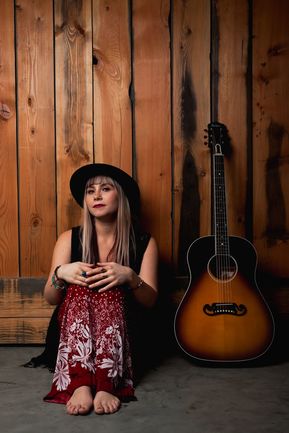
AHC: To reconcile, work with, infuse with our own inner, undiminished (although battle worn) stores of light, is hard, grief laden work. Often women's stories around abuse and trauma are silenced or drowned out in our toxic culture, which is why movements like the one you're involved in are so, so important. Could you tell people a little bit about your initiative 'I Am Enough', and your message or words of encouragement to women out there who are feeling like they are not enough right now?
Erin: The idea started with a concert idea. I wanted to have an event that supported women’s shelters. The event would showcase female identifying women. The concept grew and really took off. I was thinking of what to call it and the words I AM ENOUGH just kept coming to me. I was going through a really difficult breakup with an amazing person and was feeling lost. I was about to become a single mother again and was really faced with that question. Am I enough? I trusted the right charity would come to me and I connected with an organization called “Women United,” a branch of the United Way. The charity supports at-risk girls from junior high through high school and gives them supports like nutrition, counseling, tutoring etcetera, to help them complete high school. I realized that it really does start with our youth, If these young women can feel like they are enough at a young age, then maybe they won’t need womens shelters, maybe they won’t stand for abusive partners and they will find success and strength early on. Everytime you purchase the song “Silver and Gold” proceeds go towards Women United. AHC: The cover of your album seems to embody empowerment and acceptance of one's own life, head held high, into the light, eyes closed, a sense of both having arrived and survived. Can you tell us how the idea for this incredible cover art unfolded? Erin: I told my very creative friend that it would be cool to paint my face silver and gold. Then they all just ran with it! A woman named Emily Maxine took the photograph, Meagan Vandruten (Swear by the Moon) did the makeup, and Kendel Vreeling did the graphic design portion. I just shared my story with them and they all just really got it. AHC: What are your fondest musical memories? In your house? In your neighborhood or town? On-tour, on-the-road? Erin: I have had many great musical experiences. I have three favorites. The first was singing on main stage at Edmonton Folk Festival a couple years ago. The second would be just the other weekend, singing with my grandma and my daughter around the piano. She loves music and it was a special moment to have my daughter there as well. The third would be singing background vocals for Foy Vance at The Canmore Folk music festival in Canada. I had listened to him for years and loved his stuff so singing together on main stage was a real treat for me. AHC: What is next on the horizon for you? Erin: I am also excited to announce that I have officially partnered with Women United and we are putting on the 2nd annual I Am Enough benefit concert and it is growing. Maybe it can be around the world. My hopes are to have the I Am Enough Benefit Concert happen all across Canada, as Women United is a worldwide organization. I am working with a very talented videographer to create a powerful music video shining light on domestic violence and a woman overcoming those challenges for the song “Silver and Gold.” There is a European tour in the works and I have already started the beginning stages of the next album. I just want to keep creating music for fans and supporters. To purchase a copy of Silver and Gold please visit www.erinkaymusic.com/ The Daily Work of Caretaking and Witness – Part I. After Maggie Nelson’s The Argonauts On other Saturday nights I passed time shuffling work from one side of the desk to the other, waiting for the piles of paper to talk. I shoved plastic objects into my body, over and over and over, until I sometimes bled, until I often came, until I wanted to leave my body, or be inside of someone else’s. I fell asleep on the floor, whispered words into my fingerprints, traced them through the floorboards, wondering who can hear them, if anyone even cared to. “Feeling Real…the collected, primary sensation of aliveness. It is a sensation – a sensation that spreads. Among other things, it makes one want to live.” In previous weeks he said “you make me feel so fucking alive” but when we met, he said he was dead inside. No part of him meant this to be dramatic, or provoke my feminine urge to rebirth him back into the land of the living. He just said it. The same way you say you need to pick up dry cleaning, as if anyone does that anymore. I told him that inside my body was one long, sinewy string, pulling me taut, building my posture, forcing feeling within me. “That’s a good way to be,” he told me. “I just can’t do that anymore.” “The freedom to be happy restricts human freedom if you are not free to be not happy.” Sometime later he told me the story of a little girl in Iraq whose throat was blown open by shrapnel. He used a pen to dislodge the terror from her voice. Now ten years later she’s still alive, working as an interpreter. They are friends on Facebook. “There’s this African root that can cure me,” he said. “For $20,000 I go to Mexico or Canada and take it.” He said some nights when he is driving he swerves to avoid piles of leaves for fear they might explode and take the hearing from his other ear. He’s said some nights he can’t fall asleep because he still hears screaming, screaming, the sound of humanity collapsing in sand and sweat. I tell him to go to Canada. “Love is preferred but not required.” His eyes frighten me, unsteady and bloodshot, his lips twitch with the trace of a smile, and every noise I wouldn’t have heard if he had not been standing there with me makes him flinch, but he told me that he doesn’t have PTSD like the other guys do – he keeps busy, he writes, then he kisses me and before I can take a breath he pulls me into him, my face deep in his scent, and I am immobilized, my bones conforming to his as he inhales in a way he says he has not in years, and I know he can’t remember the last time he’s held someone who didn’t ask him to let go. “How it feels to be both accomplice and victim; and how such ambivalences can live on.” I am a childless woman, but I know what it means to grow someone inside of me, tube feed them love until their mouth foams, and they spit up blood. I have birthed my own death story which reads like this: in the last hours of life on Earth, I cut open my body, peel back the skin, and scoop out pulpy handfuls of flesh with the cup of my palms and hand them to him, the long string of my insides dangling red and ugly. Through his jeans, I feel him grow in my fingers, like magic or majesty, or just a dick filled with blood like the rest of him (and me); life is hard and so many other things. Through his jeans, I feel wetness forming in a small ring, his dick salivating, puckering its lips for me. “Her mind – besotted [it] with the narcissism that makes one think that an utterly ordinary experience shared by countless others is somehow unique.” Isn’t it interesting how you can like somebody so much you want to find a way to fit them inside of you (?) and then go on living (?) carrying around the muscle memory of the space you made for them in your body (?) every day bridging the emptiness you were born with (?) Isn’t it interesting how you can like somebody and want to be encased (?) swallowed whole by the fleshy warmth of them (?) as if you are only human (?) capable of filling, filling, filling something (?) How many times have you asked for a blow job, when all you really wanted was someone to kneel before you and cradle your tenderness with wet-lipped longing(?) Sunday comes when Saturday is still sticky in the palm of my hand. *All italicized text in this essay is from Maggie Nelson’s The Argonauts. The Daily Work of Caretaking and Witness – Part II. Let us begin. i. Semi-strangers sink slowly. In this moment we are __________. I recognize his eyes are hardly blinking, but the voices of the girls laughing outside in their PINK sweatpants and the boys outside with their hearts pulsing through wallet-condoms and evening ambitions mingle and carry the night air, ascend the white-washed brick of the outside wall, and filter into my living room, through us. In this moment we are standing. ii. I tell myself this story. Through the windows of each room, of each house, on each street, in each neighborhood, in each town, there are strangers stranger to one another than us to each other. Through the lull of our words, I confess: I don’t know how I feel, the subtext of which: I wasn’t ready to feel. Of all the semi-strangers sinking or standing, I begin to think of us as the greatest pair of all. If you want me, then I’m yours. He says this. In this moment we are holding. iii. On dead leaf porches. Fight the urge to rename this something beautiful. It’s not fucking beautiful. It’s dead leaves on porches, burning through matches, never catching fire. iv. I fuck to come, not to conceive.* We all conceive of something. Words like forever and always branded in the scar of their letters, smoldering. He told me of scars on his ribs, now covered up with drawings. He tells me the story of aching, the father he almost became, the sunshine daydream of becoming someone else. All I can think of are my lips tracing his scar tissue, hardened PINK. v. Misfiring from the start. We are semi-strangers sinking slowly, but in this moment we are falling. In love(?) possibly with everything(?). Through our fingers, interlocked and swinging, the girls’ laughs, the boys’ voices, singing. Singing. But here we are. In this moment we are something. *Italicized text in this essay is from Maggie Nelson’s The Argonauts Lena Ziegler is editor and co-founder of the literary journal The Hunger. She holds an MFA in Creative Writing from Western Kentucky University, and is pursuing her PhD in Rhetoric and Writing at Bowling Green State University. Her novel Him & Her was a finalist in Autumn House Press's 2018 Fiction Contest. She has been a finalist in GoldLine Press’s Non-fiction Chapbook contest. Her work has appeared in Yes, Poetry, The Seventh Wave, Gambling the Aisle, Red Earth Review, Miracle Monocle, Fredericksburg Literary and Arts Review, and is forthcoming in The Flexible Persona and Literary Orphans. 11/2/2018 Poetry by Beth WhitneyMercy And we are all so raw The sort of raw where kindness cuts in Like a surgery blade And a searing light Pours into our grave From the soft eyes Of a stranger Mercy. ———// Grief Who do you tell When you hate everything When your breathing out Is second hand smoke That you’ve seen slip out To wilt the world So you swallow and swallow And swallow the smoke You burn and burn and burn In your chest In your insides And you taste the ashes Don’t you Don’t you taste the ashes And anger, they say, is grief So you turn and you look For a smoldering sign And as soon as you look There are mountains And mountains And mountains of grief And you don’t hate anything at all And nothing is burning And the smoke is really fog Hung in mournings that never woke up That never let go of the forest floor It is damp and cold and terribly alive And it is everywhere And you stumble back small and lay still... Stand up now and ask. And you do You yell out to the mountains of fog What do you want from me! Why won’t you bury me! [No one has ever made a brick Out of grief You have to pull that clay from the earth Lay it alone in the sun Over and over and over Until you are the smartest pig] And you say it again. What do you want from me! Why won’t you bury me! And your grief reaches out to you then Like a beautiful woman Like a childhood friend Like a grandmother Unfolding her outstretched hand Full believing in her eyes And you wonder What would happen If you didn’t scramble back this time ————-// Beth Whitney crafts original wild folk from a homestead in the seasonally rich mountains of the Pacific Northwest. “She delves beneath the surface-- sometimes far beneath-- trying to find... something. What she creates during that search is haunting and eerily beautiful.” Frank Gutch Jr., No Depression. 11/2/2018 Poetry By Juliette van der MolenMother, May I? Mother, may i ask you why it was so different to be first born? did i alter you to this stretched & unreal smile or were you always unhappy & birthed me that way? Mother, may i go back in time and do things different, maybe smaller & less vocal, a whisper that would say ‘yes please’ & ‘no thank you’ to save tender insides where my cheeks bleed against teeth? Mother, may i explain to you how i learned things were my fault, that i should know better, that pain was a consequence & punishment so deserved? did you know that when he hit me & his mouth opened your voice shrilled against my enamel— look what you made me do! Mother, may i distance myself across state lines & oceans where you can cross only occasionally to remind me of how things were & weren’t, this kaleidoscope of jammed memories that must be real, because you say so. Mother, may i remind you that i didn’t choose to be your daughter & your albatross, nor did i want to be noticed so much by your hands & wooden spoons. Mother, may i have some peace & quiet, the kind that you always yelled & begged for, even when i tried to be so small. Shoe Box Grave trusted cradle hands meant for tender heads and lullaby sleeps, meant to usher this tabula rasa innocence into the waiting arms of the man in the moon-- digs a shoe box grave, six feet deep. she rests, a bird with wings folded inward, feathers battered by a wind too strong that pushed her from the nest, where she should have been, never was (but should have been) safe. curled inside with less care than a pair of Jimmy Choo boots, that once saw this cardboard home, she is skin and bones without breath— just blue lips and a cry stilled, colic, they said. under the tree, nestled near roots in the backyard of the house they sold with the warm brown sugar smell of chocolate chips melted in an oven, 9 minutes, not 9 months, but devoured just as quickly. took the first offer, picked each room clean, no need for baby shoes she can’t outgrow, dropped in a box marked salvation for another baby, more fortunate maybe, with a mother less likely to break. Juliette van der Molen is a writer and poet living in the Greater NYC area. Her work has also appeared or is forthcoming in Rose Quartz Journal, Burning House Press, Memoir Mixtapes, Collective Unrest and You Are Not Your Rape (anthology). You can find more of her writing at Medium and connect with her on Twitter @j_vandermolen. Her debut chapbook, Death Library: The Exquisite Corpse Collection, was published in August 2018 by Moonchild Magazine. 11/2/2018 Poetry By Michael D. Petrucelli Scott Hart CC Of Course I’m Guilty, I’m Catholic There's something about AA That's friendly to the catholic Mindset The idea of permanence And indelibility The mark that will never wash off Purged with water and fire The spoon and the candle There's something about addiction That was friendly to mine Thinking back to Virginia And her own Room I wonder if she ever knew That she could always make one With a needle in her Arm There's something about sobriety That echoes the call of baptism You wash away the Sin And you tell god That you'll be Good And just like confession Everyone knows it's another Lie And like confession You can do it Often The Slogan I poisoned every well, That I had ever drank from, To make sure, That I could never return, To any place I’d call home. You asked me why, Why did I have to run, So god damn far, From you and from home, And I couldn’t say. I wanted to say, That every person was, Every place was, And every thing was, And I didn’t know how to stop, You complained about my music, And hated his voice, So I gave up listening, To anything at all, Because it was another thing. I heard your voice in every song, I always told you I did, When you sang in your car, And you used to think, It was too quiet to hear. So I turned my back on it all, The words echoed in my head, Recovery means leaving, Places and things But most of all, people. The people at the meetings, Told me everyone was a risk, That people,places, things, But I had to learn to love, The one person who couldn’t leave. 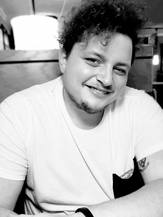 Michael D. Petrucelli is a recovering alcoholic and heroin addict, who to be honest isn't always the best at recovery, but is really trying his best. His dedications in life are to work, poetry, and love. His time away from those things is usually spent pushing towards social and economic justice. His writing deals heavily with addiction and how it steals your identity in every aspect. More of his writing can be found at https://michaelpetrucelli.wordpress.com/ or his unedited thoughts can be found on his twitter @comarxology. 11/2/2018 Poetry By Effie PasagiannisThe Sunflower I woke up to a long frost. So I escaped the crowd only to find it skimming the stalls of stuck together pages where some stood pretending to read what was for sale. Somewhere between the pit of the solitary bits of me, between those stuck together pages, I found your trace in the screen of the faraway nearby. The void returned, one which I thought would bleed me dry, the flakes of a first snow, soft, then compact blackened as big heaps piled on to more on street corners. There, I caught a glimpse among the tall stalks at golden hour, an obsidian sunflower, face down, over a pavement of colored chalk, pretty pink and baby blue, of another flower, painted on where children could hop and skip along to the other side of innocence. Navigating Silence Beyond binary opposites, the noise of corrosive dissent, there exists the limitless and the sublime mass contained in the now is freedom in lava flow, seeping into bedrock forming reveries of basalt while mountains of rage recede, frame after frame of flitting light melding into calcite white, glacial blue, volcanic black, interwoven valleys of flickering gems all within grasp – if only you’d listen to this stillness of time lacking presence, if only you’d listen to the prescient void of heaviness in light, if only you’d listen to the silence of landscape, of sound stretched to its ultimate end, drifting on vastness of smoky water, mist rising into the glimmering sky above, if only you’d listen to centuries of floating breath, domed echo-chambers of everything and nothing, if only you’d listen just listen… it’s the crack in the stones I brought home listen… it’s solitude delivered on a black sand beach, it’s a wish in a sculpture garden one afternoon listen… it’s where hopes stand erect on the edge of heaven and space listen… its the sound of surrender listen………………………………………………………………………………………………………….. My Name is Melancholy If I come back again they will call me Melancholy because I’ll remember everything you won’t I’ll remember the way the leaves brushed against me as I looked into your eyes and the endless sea beyond, I’ll remember the sound of cicadas hidden in the trees that you pointed out, I’ll remember the taste of fig and white wine as we sat on the edge of a Grecian hill for one more sunset, I’ll remember the ecstasy caught between sheets in that loft high above 15th street between 7th and 8th, I’ll remember the letting go in the mountains and a missed concert in the woods somewhere upstate, I’ll remember the gold shoes I wore, Goldie-locks you said, with tears only I could understand, I’ll remember standing over you and the stream of salty water running down your beautiful face as I gasped for air, I’ll remember the melody as you played the charango in that room with the sound of Incan streams below, I’ll remember your cold hands on my feverish forehead every hour on the hour making sure I did not fade away, I’ll remember you lying next to me reading excerpts from Escape from Freedom and how that kept me awake, But Melancholy is not static or linear, so I’ll remember the look in your eyes as you stared down at a black & white of your young mother sitting on your young father’s lap before the split, I’ll remember when restlessness knocked on your door and the sound of you sipping yet another whiskey ginger, I’ll remember the porcelain cups I bought from that little shop on the island now trapped in your cupboard in Chelsea to be held by some unknowing other, I’ll remember the vultures circling above us on the cliffs of Lima and the way you touched me in that artist’s home before saying I love you just that once, I’ll remember the words the night before, sharp cutting stones and the blow and the subsequent ache the morning after, I’ll remember how you stood a bit taller and more assured each time another distraction looked your way, I’ll remember the phone by your bedside always on vibrate, screen face down, always face down, I’ll remember your hands hardening, a viking’s mark, and the deep pale corridors replacing your blue eyes, I’ll remember the chill of cascading profanity and my silent cries on bathroom floors, I’ll remember the driver running after me with the jacket I’d left in the back seat saying it’s ok, it’s ok, please let her be, it’s ok, I’ll remember how you always walked two steps ahead in the dead of winter coming, then five steps ahead on the 14th of February of ’16, I’ll remember your two guitars and the sheet music lying around, accusations for wasted time and for the hero you hadn’t become, I’ll remember the last meal I made, the empty bottle of red and the tray of left-overs in the fridge for weeks thereafter, I’ll remember sinking into the mattress, drenched in six hour tears, searching for meaning and coming back empty, I’ll remember the words a month later, digital like you, how you said love is relative, something about fear and freedom and loss of, I’ll remember finding an out and how I took it and ran and ran until there was no place left to run to, I’ll remember months of showers in fur-flung corners of the world, memories melting and spiraling down hotel room drains, Melancholy remembers everything, the taste of being out of breath, the coming into and falling out of . Effie Pasagiannis is a first generation Greek-American lawyer, writer and curator based in New York City. Effie's poetry has been featured in Snapdragon Journal, the Write Launch, Platform Review, and the inaugural print publication of Pen + Brush, a 125-year nonprofit supporting female writers and artists. Effie has appeared as a featured poet at the Bowery Poetry Club, Arlo Hotels, The Assemblage and Pen + Brush. She is currently working on a collection of short stories with female protagonists at a crossroads of choice. One of these stories was recently featured in the September 2018 issue of The Feminine Collective. As a curator, Effie brings together writers and other artists to collaborate and showcase their work in soul-nourishing spaces. She is an avid proponent of personal transformation and an advocate for educational, criminal justice, immigration and environmental reform. 11/2/2018 If By Annalise GreyIf I wish I could fall back on that old adage of "If love were enough, you wouldn't have left" but we both know better You used to tell me you do your best work when the sun is a distant thought like the homework you didn't do or laundry left too long in the dryer Forgotten things cast aside kind of like me If love were enough I wouldn't be washing away your dust or sweeping away your thoughtlessness I'll be fine, though I hope you know Because for me the sun isn't some memory or annoying trifle in my dark, dark world It's the life and breath in me The willingness to walk, one foot in front of the other Until you are nothing more than a shadow in my sunlit day 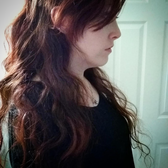 Annalise Grey is a Pennsylvania native, dreamer, explorer. She writes because she likes talking to the voices in her head. 11/2/2018 Litmus By Matt CarneyLitmus Every night is this litmus test with death, the debutant, the lilies and lilacs my friends, surrounded with the applause of summer so far below my space and my time and all the vestiges of someone else—so far-- As I’ve stood so far below my window as someone else looking up. My bottle of wine, my brittle vision, a belittled ego-- I am weak with alcohol, bitter with nostalgia, better with age. Rewatch all My little deaths again as the record repeats and synesthesia bores holes in me. Matt Carney is a human type residing in San Francisco. He holds an MA and MFA from SFSU. His work has appeared in A cappella Zoo, Inkwell, Red Light Lit, Writing Without Walls, sPARKLE & bLINK, Entropy, and in readings at eclectic or seedy bars. His short story 'On Becoming' was a finalist in the 2017 Omnidawn Fabulist Fiction Contest. Naturally, his heroes are David Bowie, Ellen Ripley, and Chun Li. @ruddagerrustin 11/1/2018 Poetry By Christine TaylorSticks & Stones He takes his usual place on the sidewalk directly in front of the clinic door, adjusts his microphone, the amplifier screeches to life. He begins his preaching, “It’s a terrible day out here in Englewood where babies are being murdered!” I’m stationed at the door, and already my ears are ringing. I take a swig of coffee from my thermos, the movement triggers him, he goes on about the escorts having better things to do on a Saturday, like going to Poetry Out Loud in Morristown, a reference so specific: the press release written when a student I advised won the regional competition some months ago, the two of us smiling in victory on stage in photographs. I wonder how much research he had to do to find this obscure tidbit, such a grotesque fascination with me that has gone into sharpening a dagger to pierce me, unnerve me, rock my foundation. I wonder if he stayed up late clicking away at a computer with a bad Wi-Fi connection, the triumph he must have felt unearthing this nugget. I wonder how I appeared in his imagination at the uncovering, how I must have buckled. Was I on my knees? As I stand at the door, staring across the street at the library, he reveals that he knows my name. Like all predators, he watches for my reaction: he wants me panicky, wants me vulnerable, wants me naked before him in truth. I don’t flinch. And we all know what happens when men don’t get what they want. A patient and her companion navigate the sidewalk, the team tries to keep the screamers and the runner at bay. We daisy-chain the space leading to the door, get them safely inside. As I close the door, he’s right behind me--a mountain of a man--his amplified words reach like claws. I turn, and for an eternal second, I look into his eyes, puffy and watery, foul ponds that turn up dead fish. He backs away, the sole of his shoe catches the concrete, and he slams down his poster bearing a bloody fetus for support. He has seen it. . . he has seen it. . . death looking him right in the eye. And he’s pointing at me and screaming about Satan’s black bodyguard paving the way for evil. And there I am under the arch of the door, all five feet of me in my pink vest, traffic rumbling down the one-way street, and like a stampede of wild horses comes the laughter. Jesus Loves the Babies The rain doesn’t keep the protesters away, the sidewalk in front of the library across the street from the women’s clinic is lined with the usuals: Korean Catholics white Evangelicals. A woman in a long dark dress belted at the waist pushes a hooded baby carriage up the sidewalk joins the crowd. I have never seen her here before-- who brings out an infant in a torrent of rain? As she bounces the swaddled baby under her large dome umbrella the limbs don’t move the head remains oddly still. . . a plastic baby doll like I had in the 80s one that does pee-pee after her bottle the mouth an endless pucker waiting for a rush down its throat. While she soothes her baby, pats the doll’s back, kisses its molded forehead, the rain pauses and one of the other escorts looks up at the sky. The clouds take no shape. Self-Care after the shift i sink into the bathtub steam fogs the mirror the cat wails from the edge of the tub his eyes bright though his body is wracked with age he implores for answers i don’t have my head splits the water nearly scalds palms pink these hands that never come clean 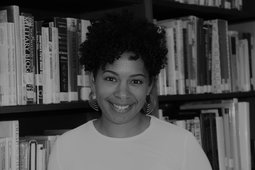 Christine Taylor, a multiracial English teacher and librarian, resides in her hometown Plainfield, New Jersey. She is the haibun editor at OPEN: Journal of Arts & Letters. Her work appears in Modern Haiku, Glass: A Journal of Poetry, Room, and The Rumpus among others. She can be found at www.christinetayloronline.com. Follow her on Twitter @cetaylorplfd. |
AuthorWrite something about yourself. No need to be fancy, just an overview. Archives
April 2024
Categories |
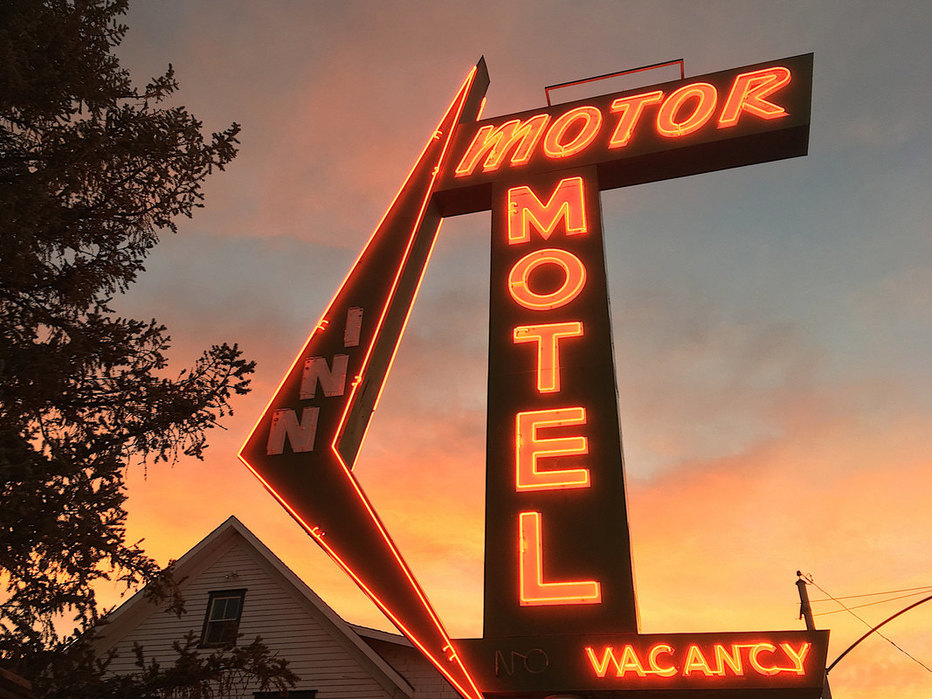
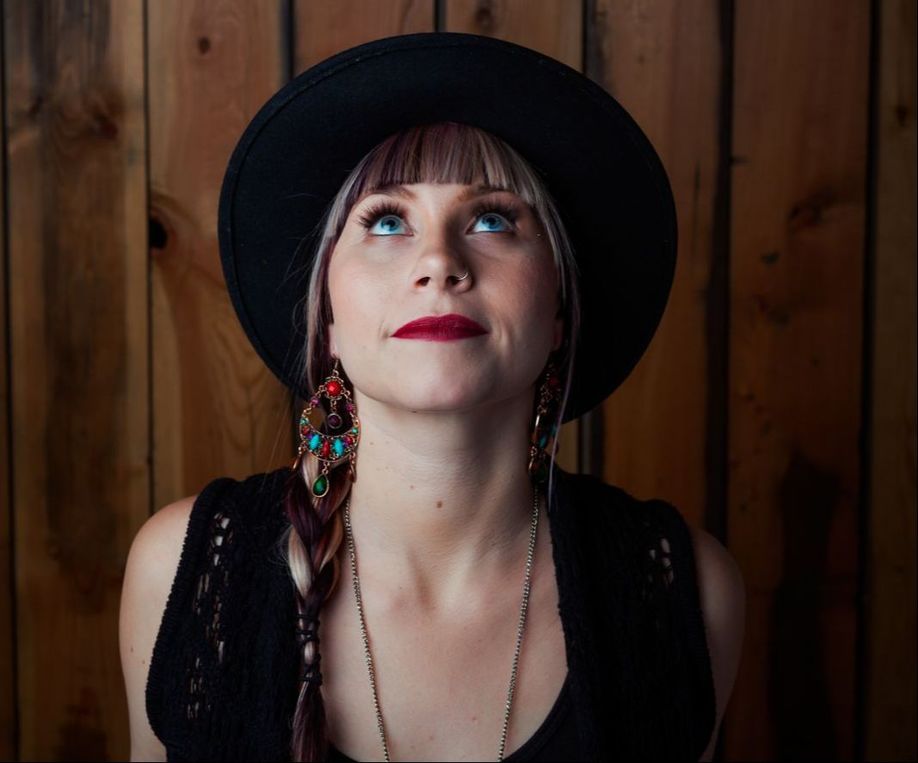
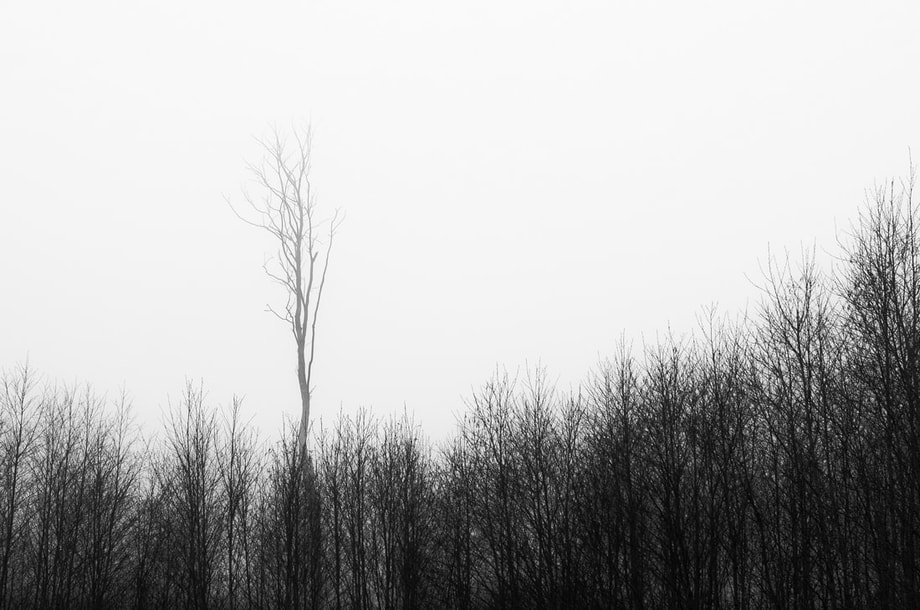
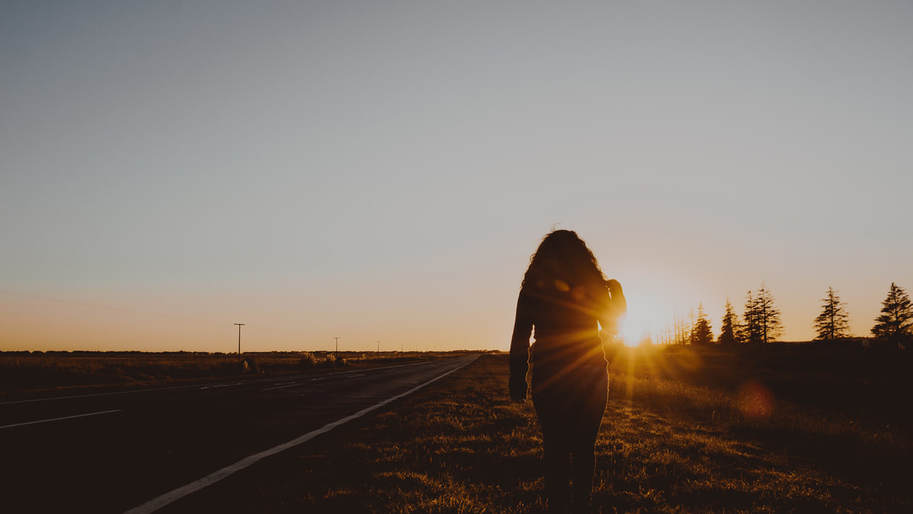

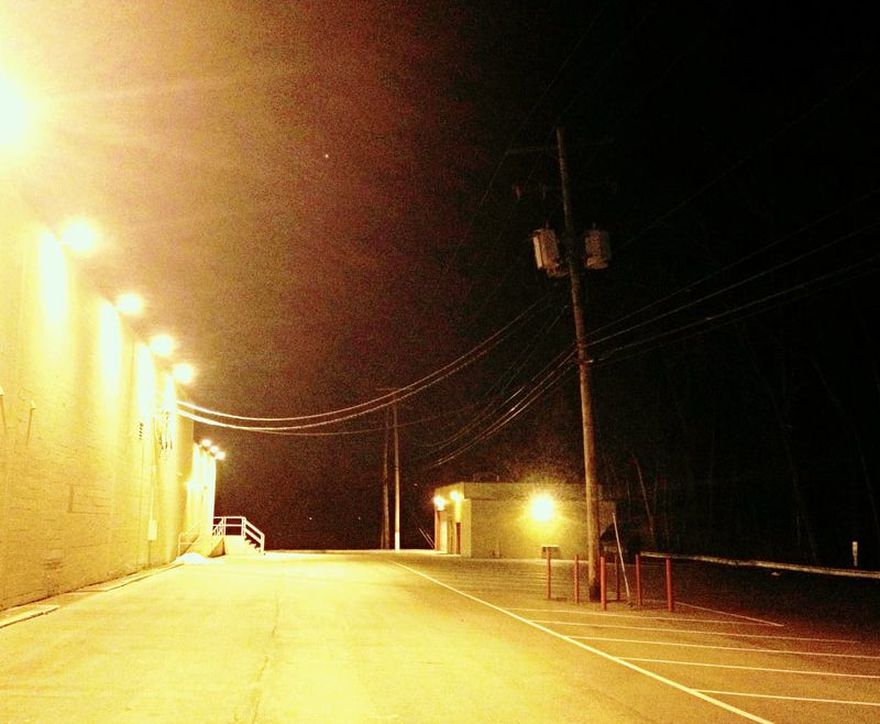
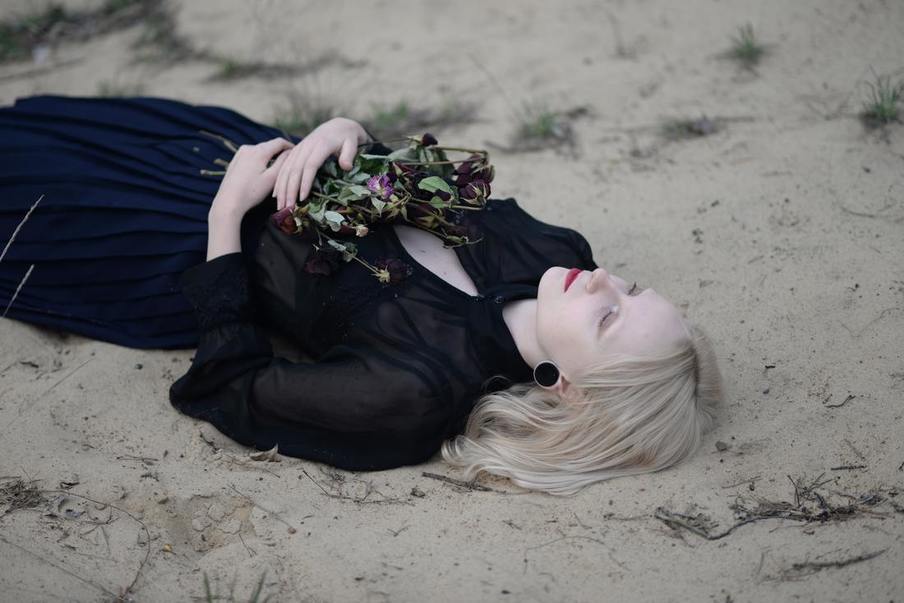
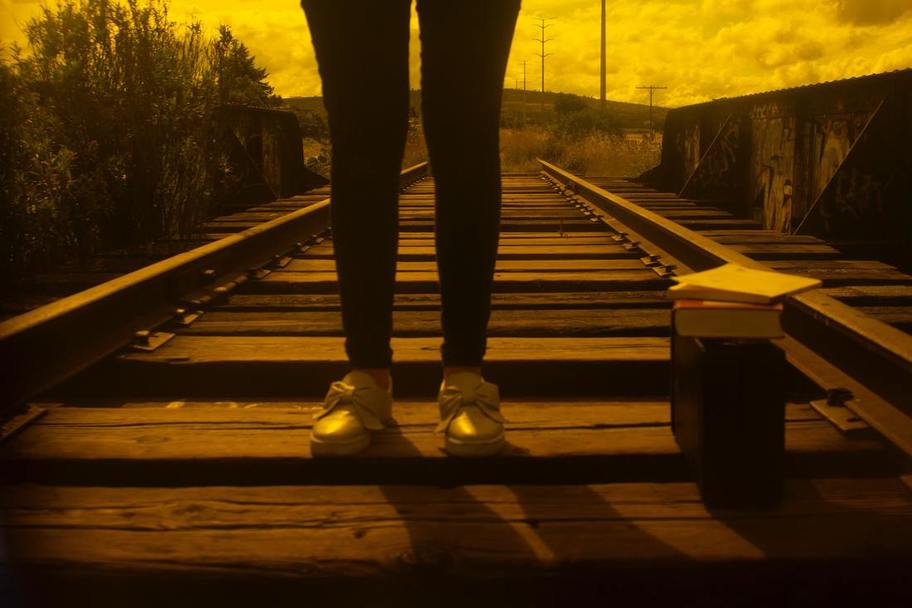
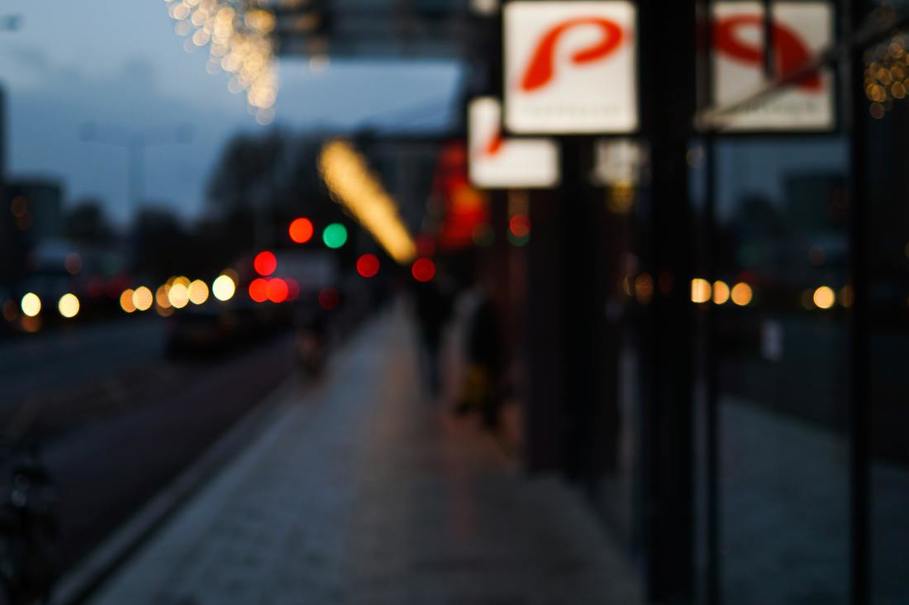
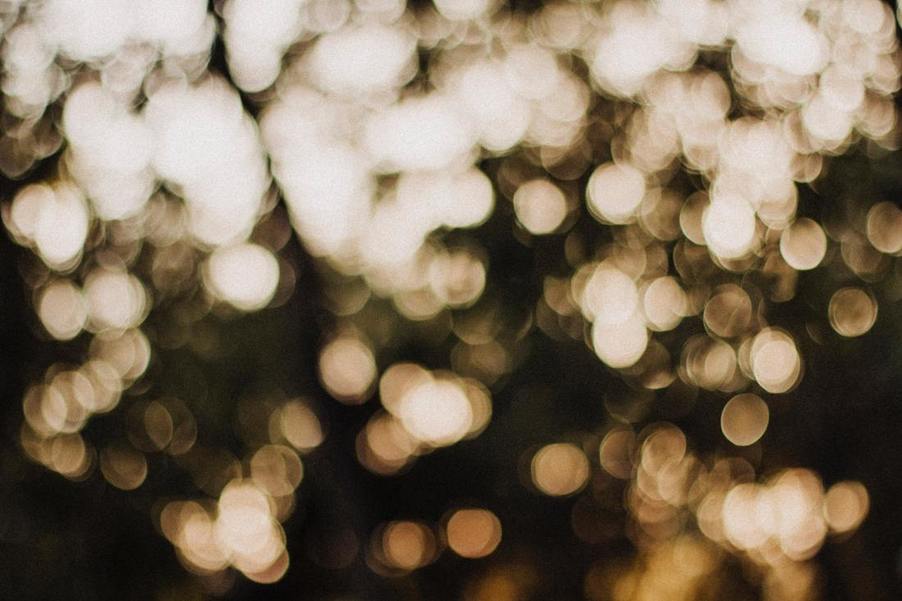
 RSS Feed
RSS Feed
